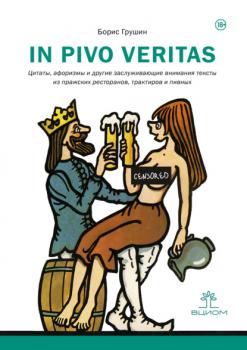ТОП просматриваемых книг сайта:
Зарубежная публицистика
Различные книги в жанре Зарубежная публицистика, доступные для чтения и скачиванияАннотация
Examines the significant role of women in the conservative movement Notable for its radical conservative views, the Tea Party is progressive in one way that much of mainstream US politics is not: it has among its most vocal members not spokesmen but spokeswomen. Michelle Bachmann, Sarah Palin, Governor Nikki Haley, US Representative Cathy McMorris Rodgers, and many others are all prominent figureheads for the fiery and prominent political movement. Many major Tea Party organizations, such as the Tea Party Patriots, are led by women and women have been instrumental in founding new right wing organizations for women, such as Smart Girl Politics, with ties to the movement. In Tea Party Women , Melissa Deckman explores the role of women in creating and leading the movement and the greater significance of women’s involvement in the Tea Party for our understanding of female political leadership and the future of women in the American Right. Through national-level public opinion data, observation at Tea Party rallies, and interviews with female Tea Party leaders, Deckman demonstrates that many Tea Party women find the grassroots, decentralized nature of the movement to be more inclusive for them than mainstream Republican politics. She lays out the ways in which these women gain traction by recasting conservative political issues such as the deficit and gun control as issues affecting families, and how they rely on traditional gender roles as mothers and homemakers to underscore their particular expertise in understanding these issues. Furthermore, she examines how many Tea Party women claim to write off traditional feminist issues like reproductive rights and gender discrimination as distracting from the real issues affecting women, such as economic policies, and how some even reclaim the mantel of ‘feminism’ as signifying freedom and independence from government overreach—tactics that have over time been adopted by mainstream Republicans. Whether the Tea Party terrifies or fascinates you, Tea Party Women provides a behind-the-scenes look at the women behind an enduring and influential faction in American politics.
Аннотация
ChildhoodDeployed examinesthe reintegration of former child soldiers in Sierra Leone. Based on eighteenmonths of participant-observer ethnographic fieldwork and ten years offollow-up research, the book argues that there is a fundamental disconnectbetween the Western idea of the child soldier and the individual livedexperiences of the child soldiers of Sierra Leone. Susan Shepler contends thatthe reintegration of former child soldiers is a political process havingto do with changing notions of childhood as one of the central structures ofsociety. Formost Westerners the tragedy of the idea of “child soldier” centersaround perceptions of lost and violated innocence. In contrast, Shepler findsthat for most Sierra Leoneans, the problem is not lost innocence but the horrorof being separated from one’s family and the resulting generational break inyouth education. Further, Shepler argues that Sierra Leonean former childsoldiers find themselves forced to strategically perform (or refuse to perform)as the“child soldier” Western human rights initiatives expect in order tomost effectively gain access to the resources available for their socialreintegration. The strategies don’t always work—in some cases, Shepler finds,Western human rights initiatives do more harm than good. Whilethis volume focuses on the well-known case of child soldiers in Sierra Leone,it speaks to the larger concerns of childhood studies with a detailedethnography of people struggling over the situated meaning of the categories ofchildhood.It offers an example of thecultural politics of childhood in action, in which the very definition ofchildhood is at stake and an important site of political contestation.
Аннотация
The Kurds, who number some 28 million people in the Middle East, have no country they can call their own. Long ignored by the West, Kurds are now highly visible actors on the world's political stage. More than half live in Turkey, where the Kurdish struggle has gained new strength and attention since the U.S. overthrow of Saddam Hussein in neighboring Iraq.Essential to understanding modern-day Kurds—and their continuing demands for an independent state—is understanding the PKK, the Kurdistan Workers’ Party. A guerilla force that was founded in 1978 by a small group of ex-Turkish university students, the PKK radicalized the Kurdish national movement in Turkey, becoming a tightly organized, well-armed fighting force of some 15,000, with a 50,000-member civilian militia in Turkey and tens of thousands of active backers in Europe. Under the leadership of Abdullah Ocalan, the war the PKK waged in Turkey through 1999 left nearly 40,000 people dead and drew in the neighboring states of Iran, Iraq, and Syria, all of whom sought to use the PKK for their own purposes. Since 2004, emboldened by the Iraqi Kurds, who now have established an autonomous Kurdish state in the northernmost reaches of Iraq, the PKK has again turned to violence to meet its objectives. Blood and Belief combines reportage and scholarship to give the first in-depth account of the PKK. Aliza Marcus, one of the first Western reporters to meet with PKK rebels, wrote about their war for many years for a variety of prominent publications before being put on trial in Turkey for her reporting. Based on her interviews with PKK rebels and their supporters and opponents throughout the world—including the Palestinians who trained them, the intelligence services that tracked them, and the dissidents who tried to break them up—Marcus provides an in-depth account of this influential radical group.
Аннотация
What impact has deconstruction had on the way we read American culture? And how is American culture itself peculiarly deconstructive? To address these questions, this volume brings together some of the most provocative thinkers associated with deconstruction, among them Jacques Derrida, Judith Butler, and Avital Ronnel. Ranging across a wide field, from the ethics of reading to the rhetoric of performance, the contributors offer provocative insights into a new sense of the political. The America of the volume's title turns out to be the place where the politics and poetics of responsibility meet. It is also the place where we confront the tension between difference and profound otherness.
In pivo veritas. Цитаты, афоризмы и другие заслуживающие внимания тексты из пражских ресторанов, трактиров и пивных - Борис Андреевич Грушин
Аннотация
Книга «In pivo veritas» («Истина в пиве») известного советского социолога Бориса Грушина была впервые издана на чешском языке в 1985 году и до сегодняшнего дня не переводилась на русский. Материал для книги автор собирал почти 17 лет, надеясь через пивной фольклор постичь массовое сознание, отношение пражан к самым различным сторонам жизни. Шаг за шагом исследователь обошел 764 пивных заведения, выучил чешский язык, собрал 687 текстов, так или иначе присутствовавших в барах в виде надписей на стенах, потолках, мебели и предметах обстановки, отобрал из них 360 афоризмов, представлявших особую ценность.
Борис Грушин надеялся, что собранный им материал будет интересен историкам, социологам, лингвистам, писателям, опытным знатокам национальных традиций.
Мы же уверены, что книга понравится каждому человеку, обладающему чувством юмора и здоровой иронией, будет полезна самому широкому кругу читателей.
В формате PDF A4 сохранен издательский макет.
Аннотация
Politik hat keinen guten Ruf – mit diesem Befund startet das Buch, um dann einen Schritt zurückzutreten und zu fragen: Was ist eigentlich Politik? Hinter jeder Form von Politik steht immer auch ein Menschenbild. Unser Menschenbild, das die gleiche Freiheit und Würde eines jeden Menschen vertritt, spiegelt am besten die Demokratie, um deren Probleme und Chancen es Gesine Schwan geht. Wie kann demokratische Politik unter Bedingungen einer globalisierten Welt funktionieren? Gesine Schwan zeigt in dieser klugen Analyse konkrete Wege aus der Krise. Sie entwickelt ein neues Konzept politischer Teilhabe – lokal und global. Dabei spielen Kommunen eine zentrale Rolle ebenso wie NGOs. Denn nur mit den Mitteln der Demokratie lässt sich der globale Kapitalismus bändigen.
Аннотация
Итак, вас публично опозорили. Как незнакомцы из социальных сетей превращаются в палачей - Джон Ронсон
Мегаполис на грани нервного срыва. Книги, которые помогут понять наше обществоАннотация
Несколько лет Джон Ронсон изучал феномен «публичного шейминга», встречаясь с его жертвами, оскандалившимися по-крупному. Всего одно прегрешение – и волна народной ярости накатывала подобно мощному цунами, снося все на своем пути. Что это: новый вид правосудия или превышение полномочий? «Итак, вас публично опозорили» – это исследование Ронсона, одновременно обескураживающее и невероятно смешное, о том, как люди под прикрытием восстановления справедливости порой буквально разрушают жизни других людей.
Информация о книге
Автор произведения Джон Ронсон
Серия Мегаполис на грани нервного срыва. Книги, которые помогут понять наше общество
Итак, вас публично опозорили. Как незнакомцы из социальных сетей превращаются в палачей - Джон Ронсон
Мегаполис на грани нервного срыва. Книги, которые помогут понять наше обществоАннотация
Несколько лет Джон Ронсон изучал феномен «публичного шейминга», встречаясь с его жертвами, оскандалившимися по-крупному. Всего одно прегрешение – и волна народной ярости накатывала подобно мощному цунами, снося все на своем пути. Что это: новый вид правосудия или превышение полномочий? «Итак, вас публично опозорили» – это исследование Ронсона, одновременно обескураживающее и невероятно смешное, о том, как люди под прикрытием восстановления справедливости порой буквально разрушают жизни других людей.
В формате PDF A4 сохранен издательский макет книги.
Информация о книге
Автор произведения Джон Ронсон
Серия Мегаполис на грани нервного срыва. Книги, которые помогут понять наше общество
Аннотация
Andreas Kislinger behandelt historische, politische, rechtshistorische und wirtschaftliche Aspekte des modernen Staates, dessen Beginn als Territorialstaat im Mittelalter angesetzt wird. Im Zentrum stehen historische Auf- und Abbauprozesse, die den Verlauf der jeweiligen politischen Herrschaftsform bedingen und prägen.
Wichtige historische Wendepunkte:
• Ab 1648 Durchsetzung der ersten individuellen Rechte.
• Um 1790 kam es zu französischen Revolutionsverfassungen, zur polnischen und zur amerikanischen Verfassung.
• 1831 beinhaltete die kurhessische Verfassung die Grundrechte Gleichheit vor dem Gesetz, Religions- und Berufsfreiheit sowie eine Eigentums-, Markt- und Finanzverfassung.
• Ab den 1950ern waren und sind die Nachkriegsstaaten in Europa durch Demokratien und parlamentarische Monarchien als Staats- und Regierungsform gekennzeichnet.
• Die sich durchsetzende Wirtschaftsorientierung in den Demokratien und parlamentarischen Monarchien basiert auf der engen Kooperation zwischen Staat und Arbeitssphäre in den 1940ern und den 1970ern.
• Abgelöst wurden und werden die Demokratien der 1970er durch die Staatsform des autoritären Etatismus (Nicos Poulantzas).
Andreas Kislinger gibt eine aktuelle Zusammenschau der mit der Staatsthematik befassten Denkrichtungen und stellt damit eine Beurteilungsgrundlage für gegenwärtige staatspolitische Entwicklungen bereit.
Wichtige historische Wendepunkte:
• Ab 1648 Durchsetzung der ersten individuellen Rechte.
• Um 1790 kam es zu französischen Revolutionsverfassungen, zur polnischen und zur amerikanischen Verfassung.
• 1831 beinhaltete die kurhessische Verfassung die Grundrechte Gleichheit vor dem Gesetz, Religions- und Berufsfreiheit sowie eine Eigentums-, Markt- und Finanzverfassung.
• Ab den 1950ern waren und sind die Nachkriegsstaaten in Europa durch Demokratien und parlamentarische Monarchien als Staats- und Regierungsform gekennzeichnet.
• Die sich durchsetzende Wirtschaftsorientierung in den Demokratien und parlamentarischen Monarchien basiert auf der engen Kooperation zwischen Staat und Arbeitssphäre in den 1940ern und den 1970ern.
• Abgelöst wurden und werden die Demokratien der 1970er durch die Staatsform des autoritären Etatismus (Nicos Poulantzas).
Andreas Kislinger gibt eine aktuelle Zusammenschau der mit der Staatsthematik befassten Denkrichtungen und stellt damit eine Beurteilungsgrundlage für gegenwärtige staatspolitische Entwicklungen bereit.










